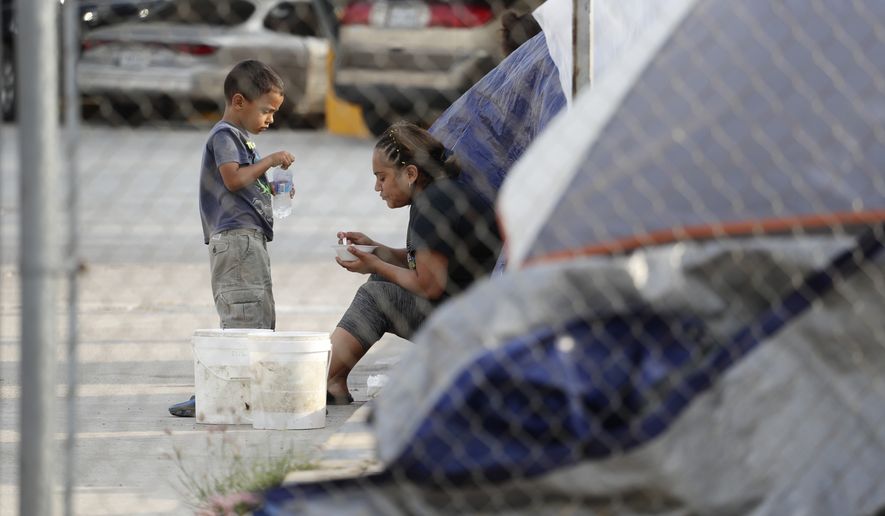President Trump won a surprise victory before a usually antagonistic appeals court Tuesday when judges ruled he could continue his “Return to Mexico” policy that allows the government to make some illegal immigrants seeking asylum wait in Mexico while their cases are being heard.
The policy, which the administration officially calls the Migrant Protection Protocols, had been one of the administration’s Hail Mary attempts to try to control the surge of illegal immigrants from Central America. Many of those are lodging asylum claims and counting on lax U.S. policies to earn them a foothold here, even if they don’t deserve asylum under the law.
The goal was to make them wait in Mexico — effectively denying them that foothold — while their cases are being heard.
A three-judge panel from the 9th U.S. Circuit Court of Appeals, which has been a roadblock to much of the president’s immigration agenda, sided with him, ruling that the law allows the Return to Mexico policy to proceed, and finding it’s particularly necessary given the surge of migrants.
The judges issued a stay on a lower court injunction that had threatened to halt the policy.
“DHS is likely to suffer irreparable harm absent a stay because the preliminary injunction takes off the table one of the few congressionally authorized measures available to process the approximately 2,000 migrants who are currently arriving at the Nation’s southern border on a daily basis,” the judges said in an unsigned opinion.
Immigrant-rights groups were horrified at the reversal — one of only a few battles they’ve lost in the courts.
“The decision to allow this cruel and irresponsible policy to continue will put many more people seeking protection in harm’s way,” said Charanya Krishnaswami, an official at Amnesty International USA.
The policy has only gotten a small test, with only a few locations actually returning a small set of asylum-seekers back to Mexico.
But the administration had hoped for a broader rollout, saying it could help change the calculus of some of those planning to head north.
Mexico says it wasn’t involved in crafting the policy, but has said it is working with U.S. officials to provide humanitarian assistance to those that are sent back and asked to wait.
Mexico’s ability to handle people has limited the U.S. rollout of the policy, American officials said.
No unaccompanied children are subjected to the MPP, nor are Mexicans who seek asylum — it would defeat the purpose to send them back to the country they are fleeing.
People from countries other than Mexico who say they still fear being sent to Mexico are also supposed to be exempt.
But Judge Paul J.. Watford, an Obama appointee, said Homeland Security doesn’t proactively ask migrants if they fear Mexico, instead waiting for them to raise it themselves. He suggested in a concurring opinion that could break U.S. treaty obligations.
He called Homeland Security’s refusal to ask “particularly irrational.”
He said he expects the lower court to come back with an order demanding Homeland Security ask those kinds of questions.
Meanwhile, Judge William A. Fletcher, a Clinton appointee, suggested he wanted to rule against the administration, but the way the case came to the court made that impossible.
“I am hopeful that the regular argument panel that will ultimately hear the appeal, with the benefit of full briefing and regularly scheduled argument, will be able to see the government’s arguments for what they are — baseless arguments in support of an illegal policy that will, if sustained, require bona fide asylum applicants to wait in Mexico for years while their applications are adjudicated,” he said.
• Stephen Dinan can be reached at sdinan@washingtontimes.com.




Please read our comment policy before commenting.